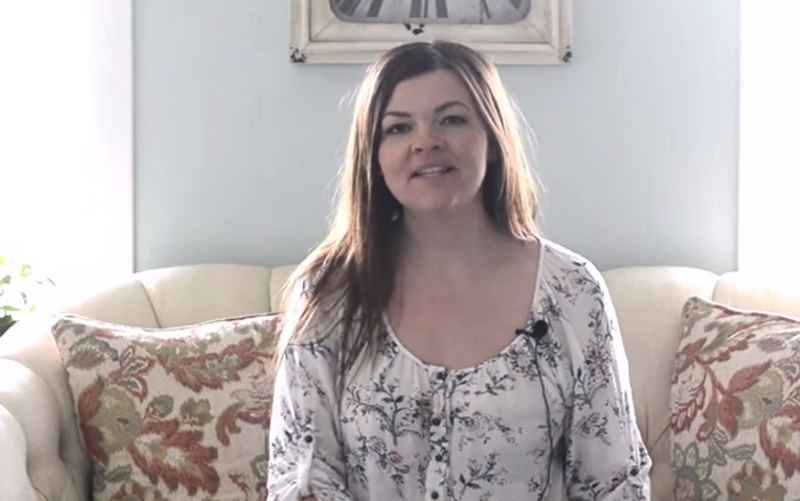What’s the first thing that a new visitor to your blog is going to see? It isn’t the title of one of your articles. It’s not your smiling face that you’ve posted into your About Me page. It’s the actual name of your blog. If your blog title isn’t something that is attractive to the reader, then this will leave the idea that the content they are about to read isn’t attractive either.
Blog titles can be difficult to implement sometimes. Some titles are funny and they work, while others try to be funny and strike out. Others are perfectly descriptive, while some are perfectly confusing. These tips will help to make sure that you craft the best title possible so that your readers will already be smiling before they read a word of the content you’ve posted.
1. Get a Different Perspective
In the world of “strange, but true,” how someone perceives their own blog is different when they read it on paper instead of reading it online. Content seems more thorough, profound, and the mistakes are easier to find when content is printed out. It’s important to get a different perspective when naming your blog, especially if this is a re-branding effort, because perspective will lead you to the proper title.
If you haven’t written anything yet, then craft a list of the topics that you’ll want to be covering instead. This will help you to define a niche. You’re not just going to have a kitchen blog, right? You’re going to have an awesome blog that discusses gluten-free recipes that can be made without cane sugar or dairy products. It is in this niche that you’ll find the keywords that will drive traffic toward what you’ve got to offer.
My Gluten-free Recipes That Don’t Use Sugar or Dairy is actually a pretty solid title, but it is a little long. Titles should generally be about 6 words or less so they make the most impact. A 3 word title is usually the best length if you can make that happen. In this example, a title like My Food Freedom would make for an attractive title.
2. Check the Ego
Many locker rooms have a banner or sign that tells the athletes to “check their ego” at the door. Games are a team sport, so the individual matters less than the team. In the world of blogging, you’ve still got to check your ego, but not because you’re part of a team. It’s because you need to discover what the attitude of your content already is or is going to be.
The blog title must align with what a reader’s expectations for the content are going to be. If you’re creating comedy content and you have a blog title that is very serious, then the confusion is going to drive up your blog’s bounce rate. Think about the overall style of your writing. Are you sarcastic? Inspirational? Should you be committed for a psychological evaluation?
After considering your tone, it is also important to consider how approachable the blog is through the title. If you’re writing about weight loss and you’re trying to be funny, then a title like Fat in the Trash Can could work. If you’re writing takes on a serious tone, something as simple as My Weight Loss Journey is good enough.
3. Humor Can Backfire
Being funny can create a viral blog very quickly. It can also backfire on the blog’s owner very quickly. All it takes is for one person to be offended by the blog’s title for a negative impression of your content to be perceived. If the wrong person becomes offended, then that spells bad news for your blog like this: N-O V-I-S-I-T-O-R-S.
Humor is a risk that many blog owners take and they really shouldn’t be doing it. The only exception to this is if you’re willing to make fun of yourself. If you use self-depraving humor, then who is the only person who can really be offended? You. If you make jokes about any other groups of people, then you risk offending someone who might normally become an avid fan of your blog.
The bottom line is this: the benefits of humor don’t usually outweigh the risks. Think about this very carefully as you brainstorm blog title ideas.
4. Know Your Audience
This is where knowing who you plan to have read your blog becomes very important. Is your blog geared towards men or women? Are they employees who hit the 9-5 grind or freelancers? Maybe your blog targets kids aged 12 or younger. Your blog title must be able to relate and be approachable for it to be attractive to your primary demographic.
You’ve also got to consider the reasons why someone might click on a piece of content to read it. Are your readers hoping to be entertained? Have they struggled to find a deep belly laugh for years and hope your content can provide that? Or should your readers have a box of tissues next to their tablet PC so that when the tears start to flow, they don’t leak onto the electronics and void their warranty?
It’s fine to have more than one answer to all of these questions. It’s fine to not even have an audience yet because you haven’t published your first blog post. What you’ve got to do is list the personality characteristics of your targeted demographics and what you expect them to expect from you. From this you’ll be able to create something as bland or as spicy as necessary to generate readership results.
5. Look At the Competition
If you’re just breaking into the blogging arena, then it is time to make sure the blinders are taken off right away. Going in blind with your blog title just isn’t a good idea. You might think you have a great idea, but the reality could be that your idea is only great to you. There are numerous failed ideas that were all hailed as game-changing revolutionary concepts.
Do you remember the Olestra chips? Or how well the Edsel did? There were people who thought these ideas were fantastic. The majority of people disagreed.
Research the blogs that are within your selected niche right now. Look at the titles of the top options that come up through a simple web search. Use these titles to create a foundation for your own idea. If you’re writing a travel blog, for example, you’ll find a lot of names like Footprints in the Sand or Traveled Paths. This means your unique title, like Footsteps in Tibet, could be a winner as well.
6. Don’t Come Up With One Idea
It’s tempting to just choose a blog name, put it into the setup fields of your preferred blogging platform, and get moving on the project. Don’t fall for this temptation. Take the time to write down several variations of your blog name to see if there’s a better idea that comes to mind.
Remember that this blog, even if it is completely about you, isn’t really about you. It’s about what it can provide in value to the readers of the blog. This means it is just as important to test out your blog title ideas with others before sticking with the one that will become your soulmate.
This step is also important because you’ll want to have a blog name that isn’t used by someone else. Not only does a unique name take you out of trademark infringement issues, but it also allows for you to create an online identity that becomes part of who you are. The blog title becomes a name that is just as important as the name you use to identify yourself with others.
Get some feedback, take the names that have the best positive responses, and then create a short-list of names from which to choose.
7. Refine Your Brand
Your blog title is going to be face of your new blogging brand. It must be a refined experience in order for it to become a positive experience. There are plenty of ways you could make this happen.
- Guest blog for others so that you get some name exposure.
- Create a social media presence for your new blog using your personal accounts.
- Pay someone to begin spreading your blogging brand to the rest of the world.
Now you’re ready to select the one perfect name for your blog. Of course there are plenty of methods of success when it comes to knowing how to pick your blog title from scratch. Whether you’re re-branding or starting a new project, before finalizing your blog title, give the name 24 hours to just sit with you. Does it speak to who you are? Does it communicate effectively?
If it does, then start blogging right away. If not, then it may be more beneficial to start the examination process all over again.








